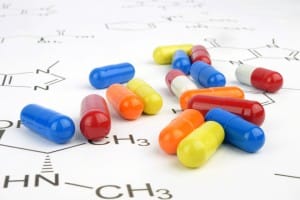

By: Lakeview Health
It’s hard enough to help people in recovery from opioids or alcohol, but treatment centers also have to deal with the emergence of ever-changing synthetic drugs. Take “flakka,” for example. Originally created in labs in the 1960s, this “designer” drug—known to chemists as alpha-PVP—is highly addictive and can trigger delusions and aggression. It has recently become popular as the latest street drug ‘du jour’. In April, the Miami Herald reported an incident in Florida’s Brevard county involving a man high on flakka who ran around naked, attacked a police officer, declared himself to be the Norse god Thor, and attempted sexual relations with a tree. Pittsburgh station WPXI reported last month that local emergency rooms are having trouble treating the effects of flakka, which is described as sending users into an “out-of-control, removed-from-reality high.” It’s deadly and numbers are up. In Broward county in the Miami Metropolitan Area, flakka contributed to 29 deaths in 2014, according to a report in the Wall Street Journal. In 2014, 200 flakka-related cases were reported in the Broward Sheriff’s Office crime lab for the entire year. In the first three months of 2015, the crime lab saw more than 300 cases. Equally dangerous: K2 K2—also called spice, incense, or potpourri—is a street drug made of various chemicals sprayed on tea leaves, grass clippings and other plant material. It is also known as synthetic marijuana because its key chemicals are often human-made versions of cannabinoids, the psychoactive substances found in marijuana. The problem is that K2 is much more hazardous than actual marijuana. The American Association of Poison Control Centers describes this synthetic drug as “extremely dangerous and addictive.” Health effects from using them include:
- severe agitation and anxiety
- racing heartbeat and elevated blood pressure
- nausea and vomiting
- muscle spasms, seizures, and tremors
- intense hallucinations and psychotic episodes
- suicidal and other harmful thoughts and/or actions
“It can be 100 times more potent than marijuana,” a spokeswoman for the US Drug Enforcement Administration told CNN. Despite the severe health risks, the use of K2 is on the rise. As with other street drugs, it is often unclear what exactly the ingredients are. Despite that, many hard-drug users are turning to these drugs because they tend to get more and more powerful and are often cheaper than previous generations. In East Harlem in New York City, a K2 joint goes for just a dollar or two; consequently, use has become widespread among the city’s homeless. Washington, DC is encountering similar problems. Law enforcement tends to be difficult, since the chemicals in the drugs are continually tweaked. Often they are not even illegal because lawmakers haven’t been able to catch up with the latest versions. Health professionals face similar problems. When treating patients using such drugs, treatment centers are usually forced to fly blind since the substances change so rapidly. “We tend to be behind the designers of these drugs, and as laws change to make them illegal, the designers create a new drug,” explains Dr. Kevin Holbert, Chief of Staff at Lakeview Health. “Unfortunately, it is our patients who are testing these drugs out. For many of the designer drugs, there is no consistent predictability of their intoxicating effects or withdrawal syndromes.” “The designer drugs will also often confuse or alter the presentation of more well-known drugs of abuse: alcohol, opiates, sedative-hypnotics,” says Holbert. “I believe they are becoming more prevalent in our population and for me the challenge in treating is the difficulty in knowing what to expect as a result of their use.” Eventually, flakka and K2 will probably fall out of fashion again, only to be replaced with a yet unknown designer drug—just when hospitals and treatment centers will have learned to deal with its predecessors.





